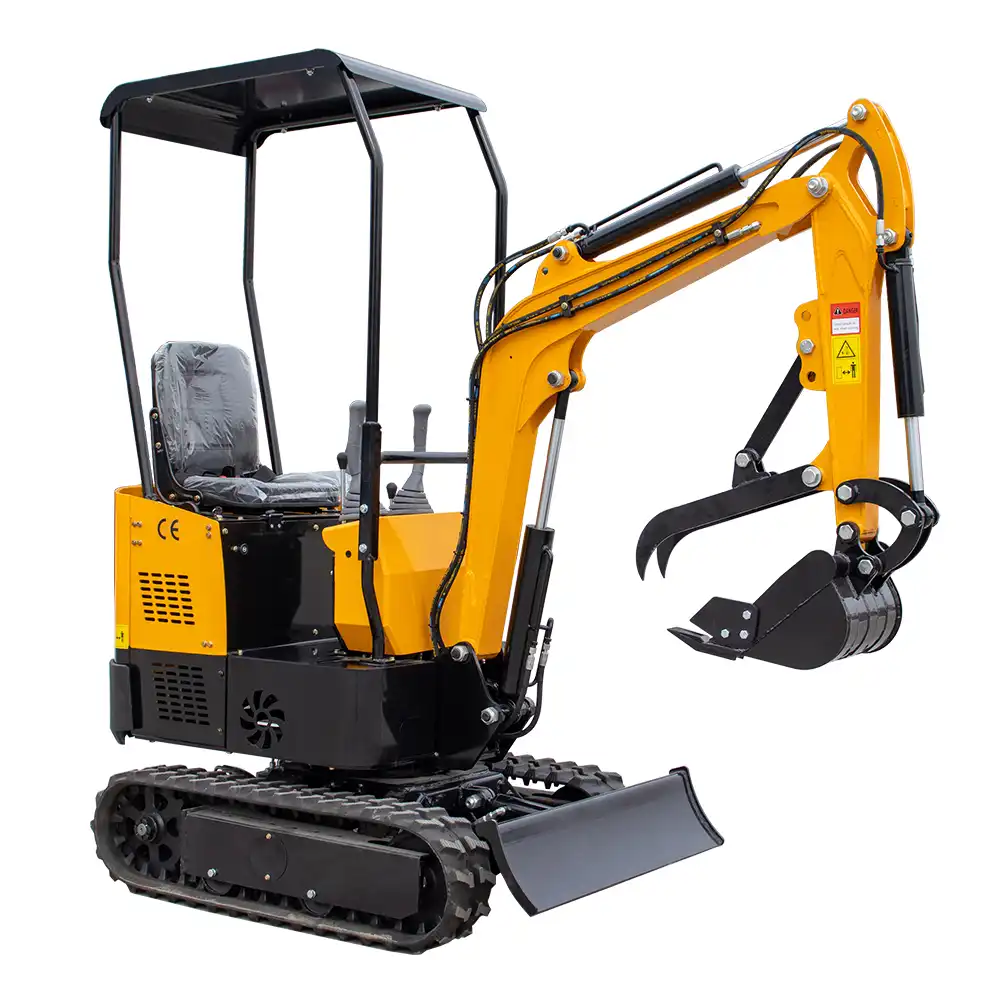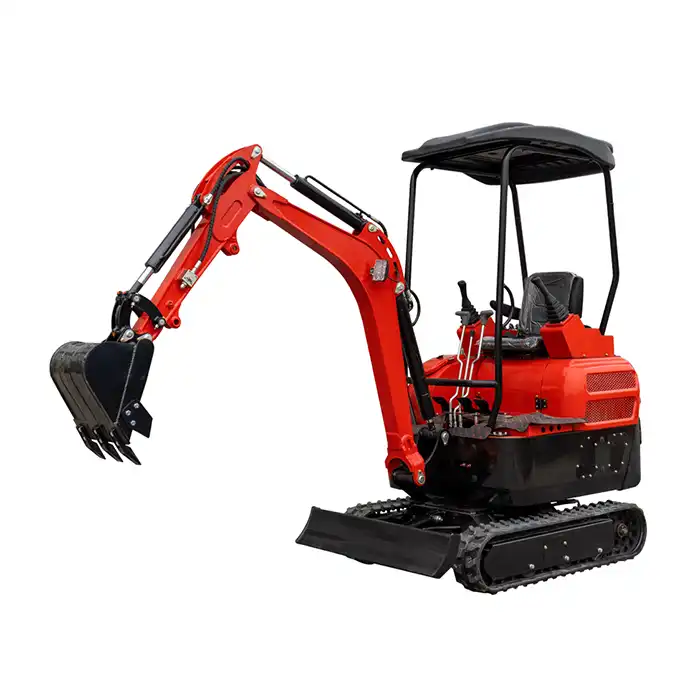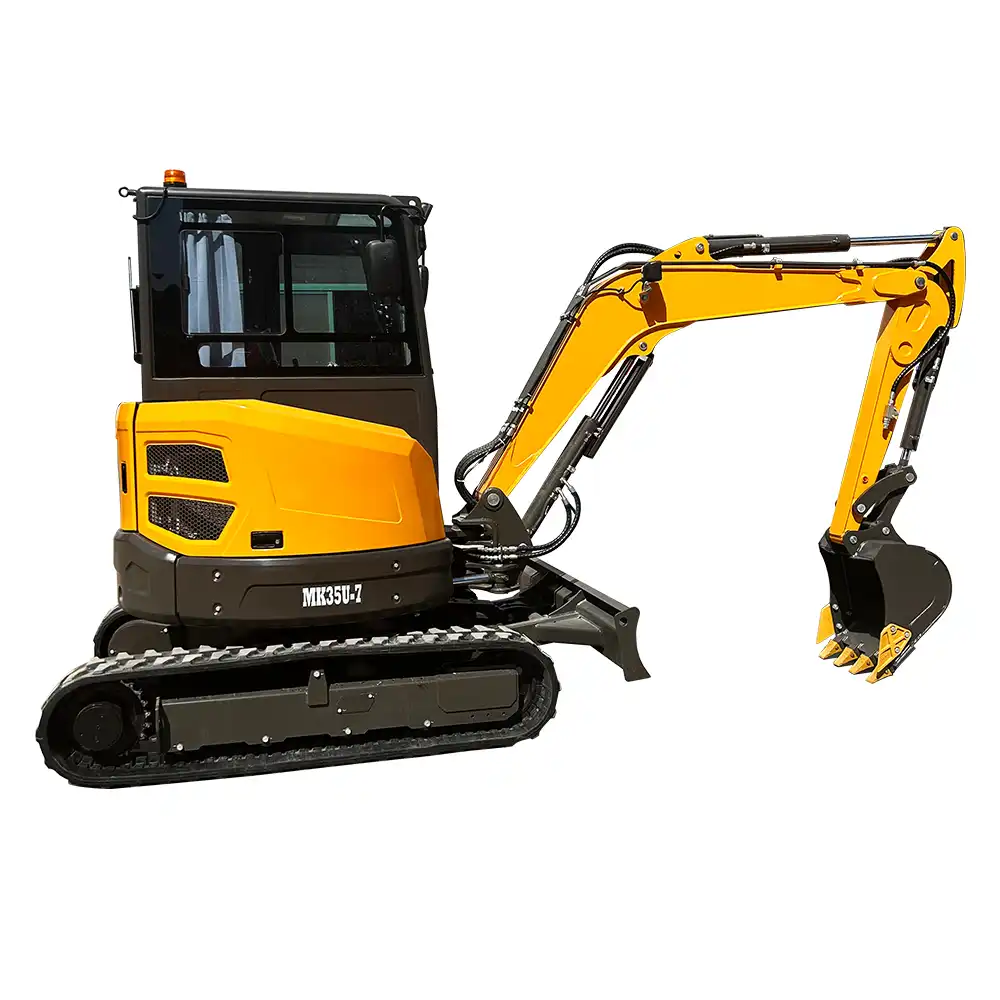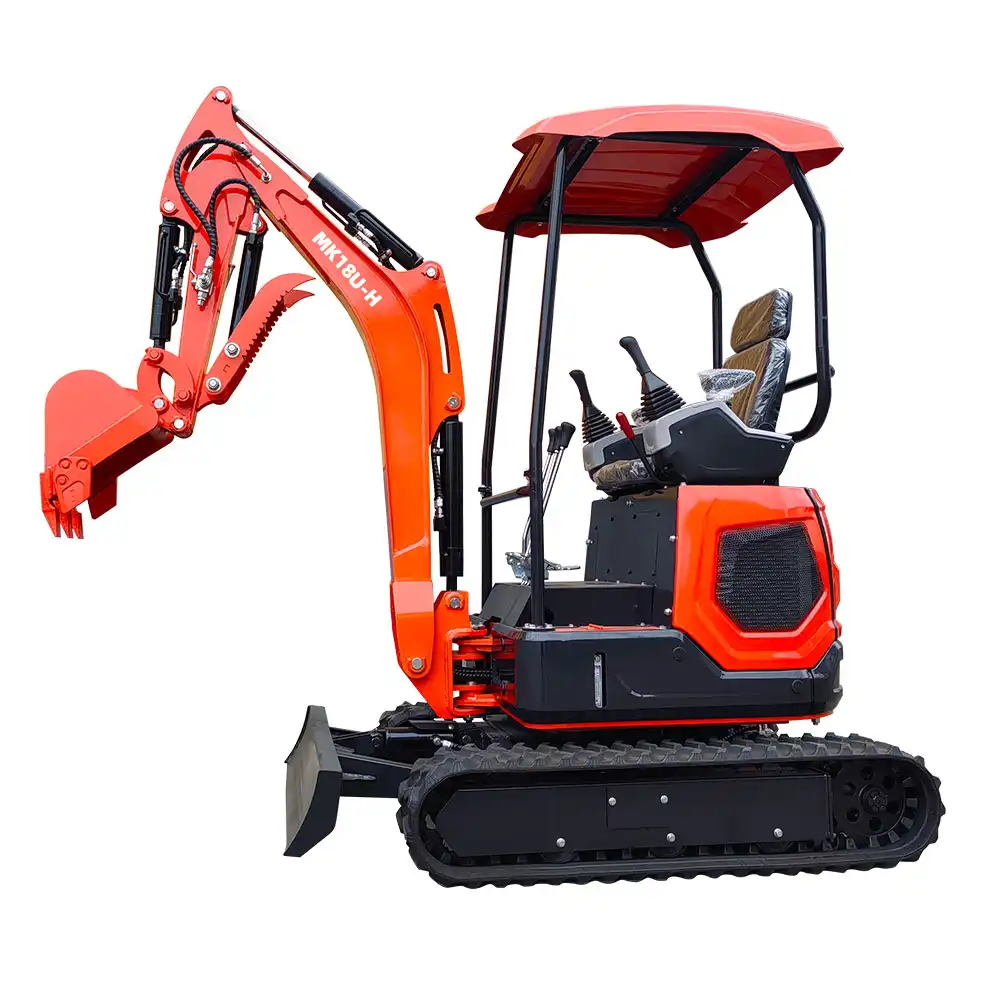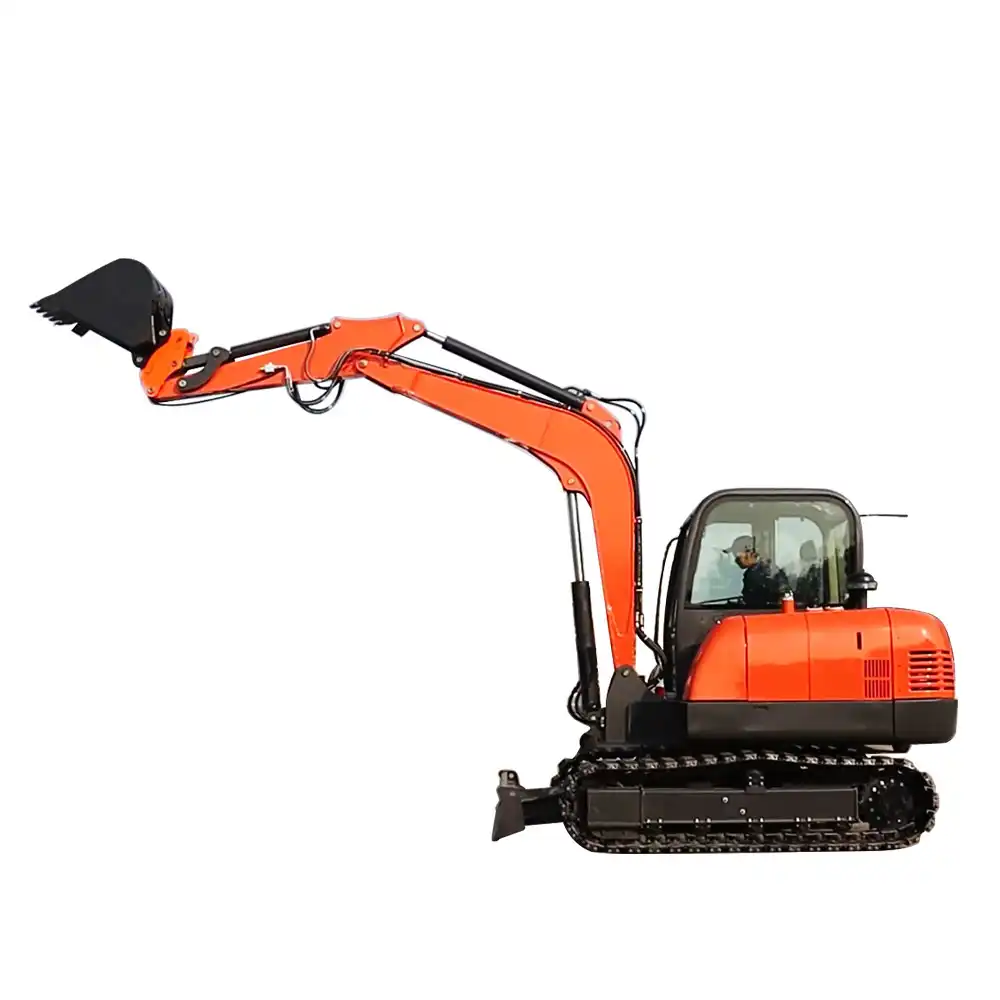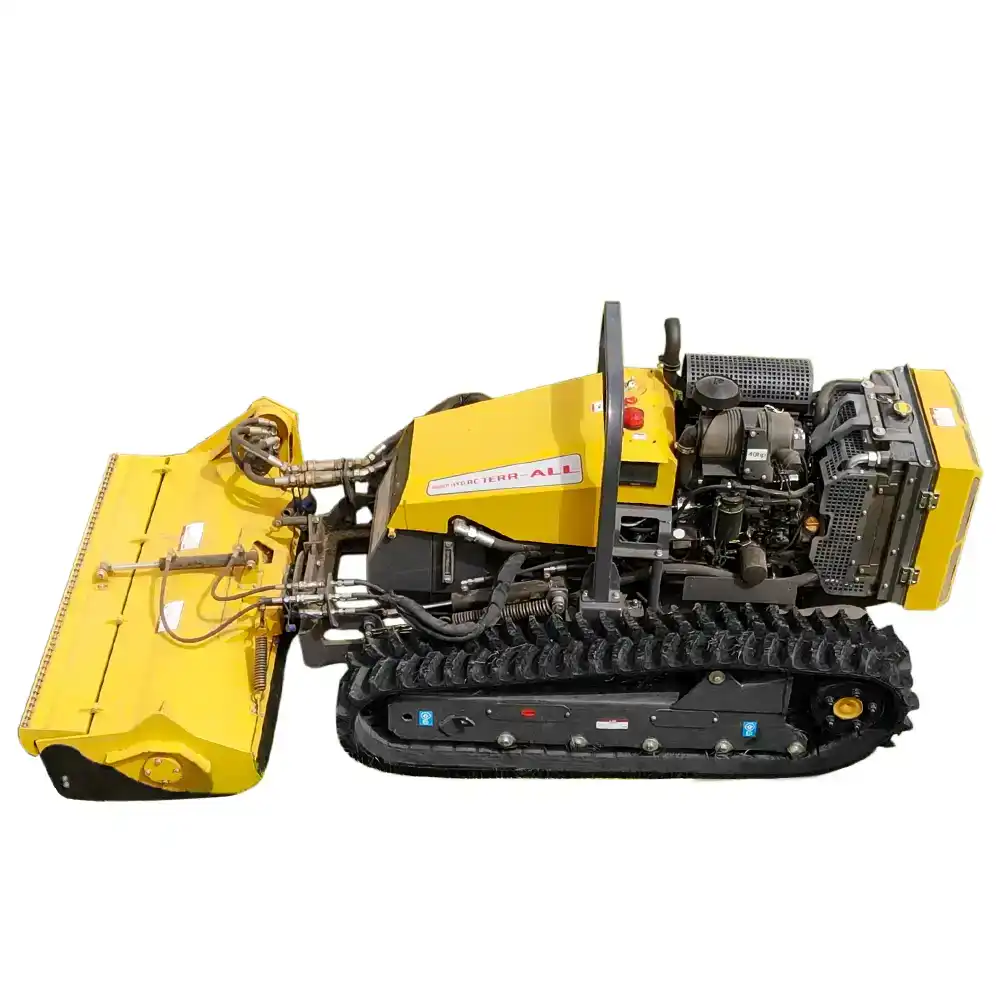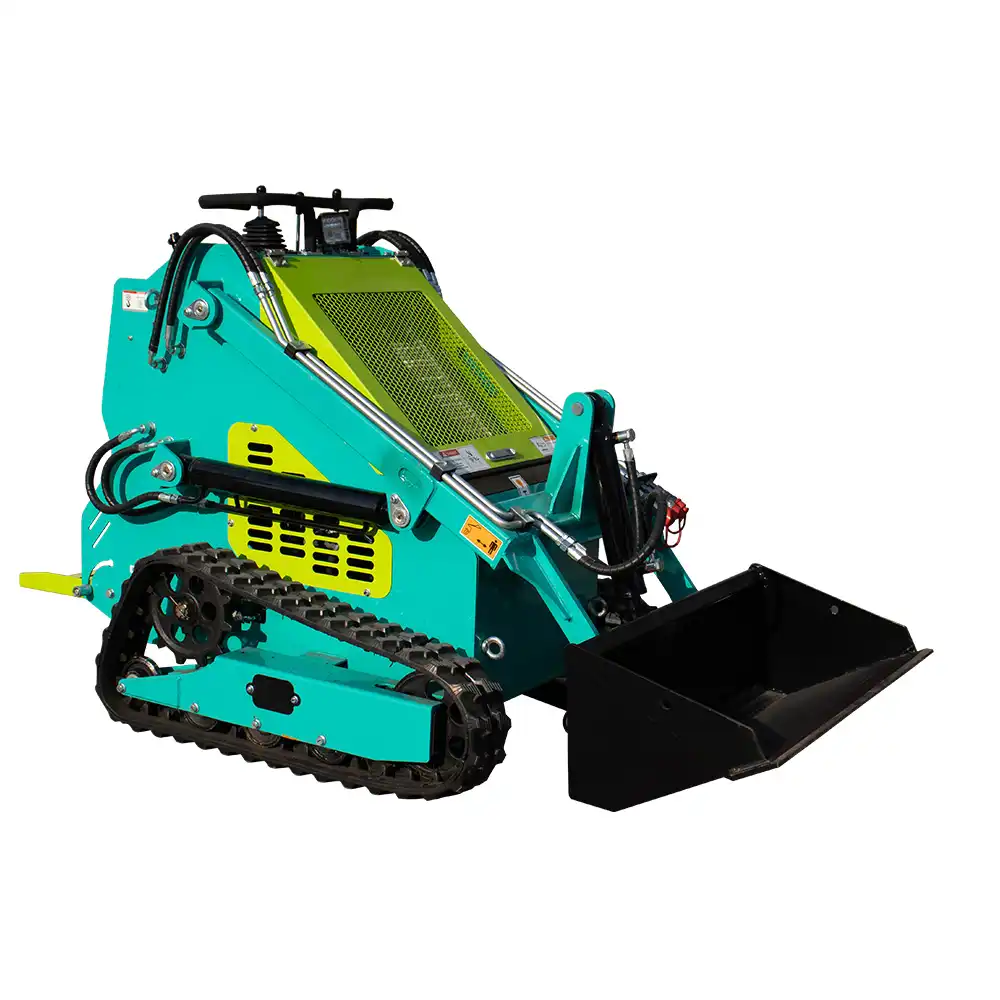A Remote Controlled Brush Mower is an advanced piece of landscaping equipment designed for tackling dense overgrowth, thick brush, and challenging terrains without direct human operation. This innovative tool combines the robustness of a brush cutter with wireless control technology, enabling operators to manage unruly vegetation safely and efficiently. Its essential role in landscaping lies in enhancing productivity while minimizing risks associated with uneven terrain and dense foliage, offering a smart solution for modern yard maintenance and agricultural machinery needs.
Understanding the Remote Controlled Brush Mower: Definition and Purpose
A remote controlled brush mower, sometimes known as a robotic or wireless mower, is a heavy-duty mower equipped with remote operation capabilities. Unlike traditional brush cutters or grass cutters that require physical handling, this mower utilizes remote control technology to maneuver through challenging areas. It is engineered to cut tall grass, shrubs, woody material, and dense undergrowth that conventional lawn mowers or rotary mowers find difficult to reach, especially in rugged or hazardous environments. The core intent is to bring precision cutting, terrain navigation, and labor-saving benefits to landscaping professionals and agricultural users. These devices often integrate electric or battery powered systems for quieter, eco-friendly operation. Their design emphasizes durability with reinforced steel cutting decks and pneumatic tires, allowing them to endure rough conditions that would typically slow down or damage smaller, self-propelled mowers.
The Challenge It Addresses and the Value Proposition
Landscaping large properties, maintaining overgrown fields, and managing fence line vegetation present considerable challenges. Traditional brush cutters require physical effort and expose users to safety risks—especially in sloped, rocky, or uneven terrain. Vegetation such as stubborn brush and woody saplings resists quick clearing, leading to labor-intensive and sometimes hazardous work. The remote controlled brush mower fulfills the need for safer, faster landscaping equipment that can access difficult zones without putting operators in harm’s way. It mitigates the dangers of working near steep banks, thorny plants, or unstable ground by allowing control from a safe distance. This capability revolutionizes outdoor power equipment use, as it combines autonomy and precision cutting tailored to rugged environments. Additionally, it addresses the growing demand for smart gardening tools that improve productivity without sacrificing environmental responsibility. By cutting dense brush efficiently, it also helps prevent overgrowth that might threaten the health of native plants or contribute to fire hazards.
Core Features and Functional Advantages of Remote Controlled Brush Mowers
The makeup of these innovative mowers includes several standout features enhancing their utility in landscaping tasks. Many models boast a cutting deck larger than typical lawn mowers—ranging from 24 to 27.5 inches—enabling broader swaths of vegetation to be mowed in one pass. This wide deck capability drastically reduces operation time while delivering precision cutting necessary for neat, professional results. Their powerful engines, typically between 8 to 15 horsepower, use advanced remote control technology binding the operator and mower via wireless signals. This technology ensures responsive maneuvering and control over complex terrain, often incorporating all-terrain tires that navigate mud, slopes, and debris-laden paths with ease. Advanced models also feature locking differentials that boost traction and articulating cutting decks that adapt to uneven ground, maintaining blade contact and even cuts. The inclusion of rechargeable battery systems offers electric mower benefits, such as reduced noise and zero emissions, without sacrificing power or runtime. Remote operation further facilitates safer operation. Users can maintain vantage points away from obstacles or hazardous areas while still conducting regular yard maintenance or clearing. This leads to less operator fatigue and increased efficiency.
Technological Insights: How Remote Controlled Brush Mowers Work
At the heart of a remote controlled brush mower lies a combination of rugged mechanical design and cutting-edge wireless control systems. The mower incorporates electric motors or gasoline engines connected to heavy-duty cutting blades designed to slice through thick brush and small saplings, typically up to 2 inches in diameter. The remote control mechanism employs radio frequency (RF) or Bluetooth connectivity to relay commands instantly between the handheld controller and the mower’s onboard computer. This setup ensures fluid responsiveness and real-time adjustment to speed, cutting height, and directional movement. Sensors and gyroscopes may be embedded to monitor terrain inclination, stabilizing the mower’s deck and enhancing safety. User interfaces often offer intuitive controls, such as joysticks or touchscreens, simplifying navigation and operation. Some models integrate autonomous features, navigating predefined paths or even adapting cutting patterns based on vegetation density. These technological advancements merge to form a robust, user-friendly landscaping tool suited for both professional groundskeepers and property owners requiring extensive yard maintenance.
Principal Benefits and Considerations
The key advantages of remote controlled brush mowers include improved safety, enhanced efficiency, and superior adaptability to various landscaping challenges. Their remote operation keeps users at a safe distance from thorny or rocky environments, minimizing injury risks. The ability to cover wide swaths quickly accelerates clearing or maintenance tasks, freeing up labor resources. Their robust build enables them to endure dense woody vegetation and rough terrain where traditional robotic lawn mowers or standard gas-powered mowers falter. The wireless mower aspect also reduces operator fatigue associated with manual brush cutting, supporting longer, less strenuous work sessions. Users should consider the initial investment cost since these machines combine complex electronics with heavy-duty construction. Battery life or fuel requirements might affect continuous work duration, depending on model specifications. Some terrains with extreme incline or unusually dense brush may still challenge the mower’s capabilities. Maintenance of sensors and remote systems requires technical understanding but is generally offset by the reduced physical wear and tear on operators and machines alike.
Comparative Landscape: Remote Controlled Brush Mowers vs. Conventional Equipment
When comparing remote controlled brush mowers to traditional brush cutters or manual clearing saws, differences become evident in safety, efficiency, and precision. Manual brush cutters demand physical proximity and exertion, increasing operator risk and limiting productivity. Conversely, robotic lawn mowers or autonomous mowers built mostly for flat lawns cannot handle dense brush or woody stalks effectively. Remote controlled brush mowers fill a niche by combining remote operation with heavy-duty cutting capacity. They surpass basic grass cutters in power and versatility while offering advantages over autonomous mowers regarding terrain versatility and brush thickness handling. This blend makes them uniquely suited for rugged landscaping and agricultural maintenance. While chainsaws excel at cutting large diameter wood, they are less efficient for clearing wide areas of dense brush quickly. Thus, remote controlled brush mowers provide a middle ground solution that balances power, ease, and safety for demanding landscaping projects.
Target Users and Practical Applications
Ideal users of remote controlled brush mowers include landscaping companies, agricultural landowners, municipal maintenance teams, and contractors managing large properties with overgrown vegetation. Outdoor enthusiasts maintaining trails, parks, or recreational facilities also benefit from their utility. Typical use cases encompass clearing abandoned or neglected land, managing fence lines by cutting dense weeds and brush, maintaining trails or paths for safe access, and performing routine yard maintenance where heavy brush impedes conventional mowers. Their ability to navigate rough, uneven, and debris-strewn areas expands potential applications beyond typical lawn care. These machines significantly aid in reclaiming land quickly, mitigating fire hazards by controlling dense vegetation, and ensuring safety in areas that are challenging to access with manual equipment.
Frequently Asked Questions
Q1: How does a remote controlled brush mower improve safety during landscaping?
A: By allowing operators to control the mower from a distance, it eliminates direct exposure to hazardous terrain, dense brush, and potential obstacles. This reduces accident risks and operator fatigue.
Q2: Can remote controlled brush mowers handle thick woody plants effectively?
A: Yes, these mowers are designed with powerful engines and heavy-duty cutting decks capable of cutting woody stalks up to 2 inches in diameter, making them suitable for thick vegetation management.
Q3: What maintenance is required for remote controlled brush mowers?
A: Routine maintenance includes blade sharpening or replacement, battery or fuel system servicing, sensor and remote control system checks, and cleaning debris from the cutting decks to ensure optimal performance.
Conclusion and Future Outlook
Remote controlled brush mowers signify a pivotal evolution in landscaping and agricultural machinery. Their fusion of remote operation technology with powerful brush cutting capacity provides enhanced safety, efficiency, and versatility in managing challenging vegetation and terrain. As demand for smart gardening and autonomous equipment grows, these devices stand poised to redefine yard maintenance standards. Innovations in battery technology and AI-assisted navigation promise even greater autonomy and performance in future models, positioning these mowers as indispensable tools for professional landscapers and landowners seeking sustainable, efficient solutions.
Call to Action: Experience Excellence with Shandong Mingko Industry Corporation's Remote Controlled Brush Mower
Partner with Shandong Mingko Industry Corporation to enhance your landscaping toolkit with top-tier remote controlled brush mowers. Our commitment to quality, innovation, and customer satisfaction positions us as a premier Remote Controlled Brush Mower manufacturer and supplier worldwide. With over 15 years of industry expertise, factory direct sales, and customization options starting at one unit, we tailor solutions to your unique landscaping needs. Our ISO 9001 certified products bring unmatched durability, precision cutting, and cutting-edge remote control technology essential for modern yard maintenance and agricultural machinery applications. Trust in Shandong Mingko Industry Corporation for a reliable, efficient, and safe equipment upgrade. Comprehensive after-sales support and lifetime technical assistance ensure your investment remains productive. Reach out today and discover our offerings by contacting us atsales@mingkomach.com. Transform how you tackle brush mowing tasks with our advanced outdoor power equipment and wireless mower solutions.
References
1. Landscape Management Magazine, “Trends in Remote-Operated Mowing Equipment” 2022 Edition
2. Agricultural Equipment News, “Advances in Brush Cutting Technology for Rough Terrain” 2023
3. John Deere Technical Journal, “Power and Precision: The Science Behind Modern Brush Cutters”
4. National Association of Landscape Professionals, “Safety Enhancements in Outdoor Power Equipment”
5. International Journal of Agricultural Machinery, “Remote Control Applications in Agricultural Tooling” Volume 35, 2024
6. Green Tech Innovations Annual Review, “Battery Powered and Robotic Lawn Mowers: Market Insights”



